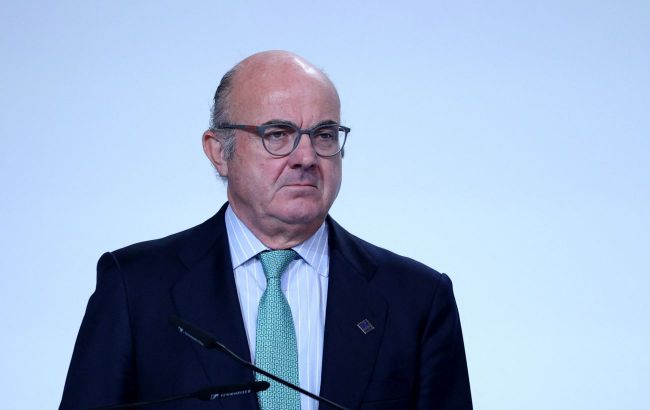Using Russian assets to help Ukraine may harm euro - ECB vice president
 European Central Bank Vice President Luis de Guindos (Getty Images)
European Central Bank Vice President Luis de Guindos (Getty Images)
The potential reputational damage from using frozen Russian assets to aid in the recovery of Ukraine is currently ruling out such a move, according to the Vice President of the European Central Bank (ECB), Luis de Guindos.
"Our position on utilising the dividends and interest from the frozen assets is clear. First: this should be a global decision, ideally involving all members of the G7. In addition, we have to be careful because this could lead to reputational damage," he said.
According to him, this will have consequences for the euro as a secure currency.
"The euro is the second most important currency in the world, and we have to consider its long-term reputation. I think there are other ways to finance the reconstruction of Ukraine," said Luis de Guindos.
Frozen Russian assets
The European Union is discussing plans to impose a tax on income derived from frozen assets of the Central Bank of Russia to use these funds for the recovery of Ukraine, although the ECB has expressed concerns about such a step.
It is estimated that over 200 billion euros of Russian sovereign assets under sanctions are in the EU. The European Commission intends to present a specific legal proposal on how to use Russian assets.

